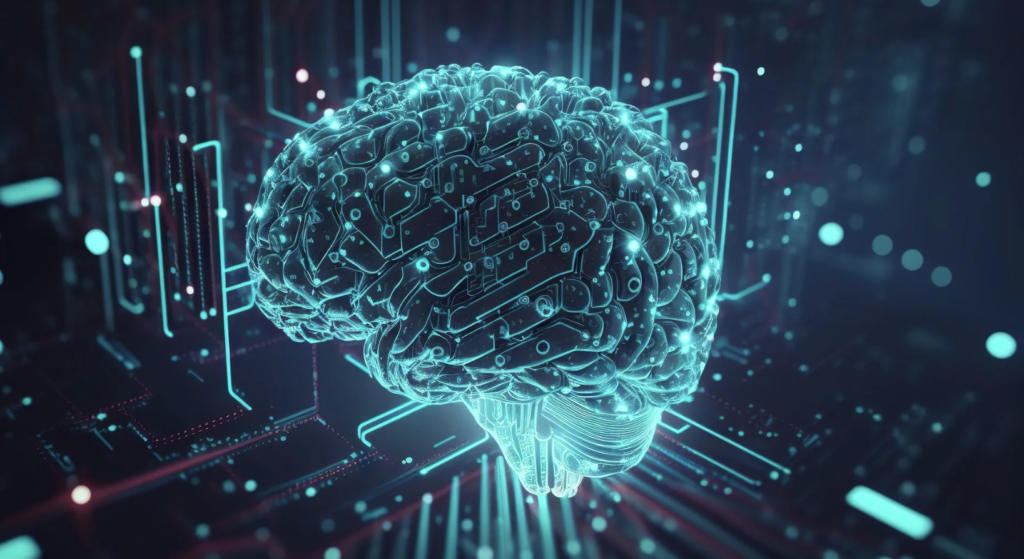Artificial intelligence (AI) has already seeped into headlines and if you are not aware of it then you are not living in this generation. We have seen ChatGPT drafting emails and many other AI tools designed for creating images, generating SEO content etc. Earlier all this work was done by humans , but now the scenario has changed with slight intervention of human, AI tools will do the work for us.

In 2025-2030, AI’s advancement is set to transform the job market, industries and expectations for workforces across the world. So it is very crucial to understand the impact of AI on various sectors . This comprehensive guide will explain the ways AI will impact jobs and how organizations and individuals can keep up with this age of constant change.
Role of AI in Transforming Jobs :
1. Current Landscape: AI Is Reshaping Jobs Already
AI isn’t just waiting for the future, it’s here now. Tools such as ChatGPT, Gamma, Numerous AI as well Google’s AI assistants disrupt workflows in content as well as data processing along with customer services. The resistance to these advances could lead to being left behind. Companies that embrace AI will benefit the most, as we can see a huge demand for AI related jobs and AI augments the speed and quality at which the work is done. In the meantime automation is likely to continue to take over certain tasks. The most important thing is adapting.
2. AI Could Add $13 Trillion to Global GDP
According to McKinsey’s forecasts, in 2030 AI will contribute another $13 trillion dollars to world economy, which would translate to a roughly increase of 16% in GDP. This is roughly the equivalent of a 1.2 percent increase over the current average. The growth is due to two primary sources of automation and AI-driven technology.
3. Companies are ready to Adopt AI
McKinsey also estimates that by 2030, approximately 70% firms will have implemented at least one form of AI technology. However, only a small fraction will have integrated all of the major AI areas into their processes. This suggests that even though AI adoption is likely to be widespread, complete integration and the optimization of AI tools is a long-term, complicated process.
4. Job Loss vs Creation: What is the reality ?
As per the research conducted by Goldman Sachs they had announced a surprising numbers i.e. around 300 million permanent jobs will be destroyed with AI in 2030. This would be nearly 25% of the work across both the U.S. and Europe. Some jobs could be subject to complete automation, but the loss could be offset by the improvement in productivity and rise of completely new positions.
Furthermore, McKinsey reports that 14% of all global employees may need to change jobs due to robots, AI, and digitization in 2030. This change is especially important for those in repetitive, process-oriented jobs.
5. Which Jobs are Vulnerable to AI ?
AI is currently replacing a number of jobs, including those that require repetitive, routine tasks
- Representatives of customer service chatbots as well as AI-based response system are able to handle questions at a high-volume.
- Receptionists The kiosks that are powered by AI as well as virtual receptionists who help visitors and greet them.
- Software now automates basic bookkeeping, data collection, and produce reports.
- Marketing and sales advertising and customer outreach are becoming increasingly automated.
- Logistics and warehouse: Robotics streamline inventory as well as picking and shipping.
- Underwriting for insurance: AI can evaluate the risk and perform with great effectiveness.
6. Skills AI Can’t Replace
Certain professions are inherently immune to AI disruption, because they rely on emotional intelligence, creativity or a complex judgement.
- Teachers : The human interaction and mentoring they offer is not easily duplicated. Some tools may seem to replicate it but emotionally they can’t.
- Judges and lawyers: Another sector where AI couldn’t show its impact. Argumentation in law, strategy for cases and persuasive arguments are heavily based on human understanding.
- Management and Executives : The qualities of leadership, motivation and vision are fundamental human characteristics.
- HR managers : The role they play in the organization’s culture and employee wellbeing is complex and relationship-based.
- Psychologists and psychiatrists
- Surgeons : Even with the aid of robotics, the surgeon’s judgement and flexibility remain paramount.
They are expected to be able to endure and even thrive because of their unique human characteristics.
7. Complementary vs Substitution Effect:
A study of more than 12 million job ads found that AI isn’t just about eliminating jobs, it shifts the demand towards AI-related skills. Employers increasingly look for skills like digital literacy as well as teamwork, ethics and resiliency. These abilities enhance rather than replace AI capabilities. Actually, AI’s complimentary results outpace the effects of substitution by 50%, which indicates that there is a positive need for human capabilities.
8. Automation vs Augmentation: Impact on Work & Wages
Studies on U.S. job markets shows an important trend: Automation AI tends to decrease job opportunities and increase wage growth in lower-skilled occupations, whereas augmentation AI tools that boost human productivity can lead to new job opportunities and raise salaries in higher-skilled positions. As AI develops the gap could increase wage gaps if the pace of skill development is kept up.
9.Displacement Warnings
Geoffrey Hinton who is known as to be the “Godfather of AI,” warns that AI may eventually replace human labor across every field. He is worried about a scenario in which one person could perform the work of ten which could result in massive displacement in the event that individuals do not proactively upgrade their skills.
Another report warns of the possible disappearance to 8.3 millions UK jobs particularly in administrative and low-wage positions in the absence of policies and training initiatives take action.
10. Entry-Level Roles are at risk
Recent research by Stanford University shows that AI is already threatening the entry-level jobs available to American graduates. Jobs in software engineering as well as routine office work or customer support have all seen the number of jobs decrease by 13% for the aged 22-25. Although experienced professionals are protected, younger workers face less opportunities to enter the workforce.
11. IMF & Goldman Sachs Insights
The IMF estimates that AI will impact 40percent of all global jobs and will be a major factor in the rise of high-skilled jobs in the developed economies. Although productivity gains are expected wage pressures and a decrease in hiring could be the result if not taken care of actively.
Similar to that, Goldman Sachs warns that AI could make it possible to automate up 25% of the tasks especially in white collar positions. However, in the past, technology has generated more jobs than it has did away with, but the pace of revival may be slower than the pace of change.
12. How to Adapt: Succeed in an AI-Driven Future
AI isn’t just a one-time event. It requires constant adaptation. Make sure you invest in certain skills which Ai can’t handle smoothly.
- Critical thinking, empathy, ethics, collaboration : These qualities are totally emotionally dependent so AI will struggle to replicate them.
- Ability to change direction, study new tools, or investigate hybrid roles.
- Specialization developing expertise in specialized areas such as AI Ethics, Domain Translational abilities or human.
Conclusion :
The impact of AI is real as a professionals we should be ready with all the possibilities to face the disruption created by it. People who embrace the process of learning throughout their lives will look at AI as an opportunity. Human learning along with use of AI, will directly or indirectly augments human capabilities.
So Ai may replace low level jobs with purely depends on automation. In certain sectors/ jobs where human emotional or thinking is important AI just plays the role of assistant not more than that.
